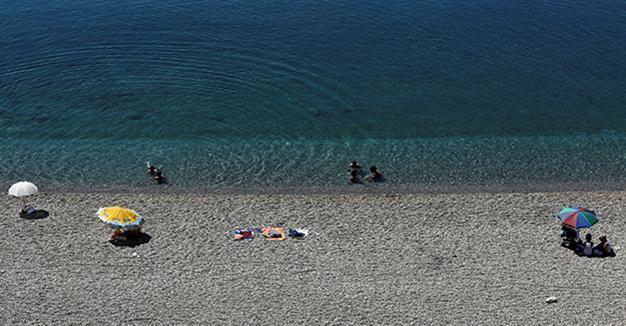Global tourism GDP resilient this year, but woes for France, Turkey
BERLIN - Reuters

REUTERS photo
Travel and tourism will contribute less than previously forecast to the economies of France, Turkey and Brazil this year, hit by attacks, political and economic turmoil, though globally the sector is resilient, the World Travel and Tourism Council said.
Brazil is hosting the Olympic Games this year but its travel and tourism sector has suffered under a political crisis, its worst recession since the 1930s, and the Zika virus.
The sector’s contribution to Brazil’s gross domestic product (GDP) is expected to shrink by 1.6 percent this year, against a previous forecast for a drop of 0.9 percent, the WTTC said.
Islamist militant attacks in Paris, Brussels and Nice have resulted in lower demand for travel to Europe. In France, the travel and tourism sector’s contribution to GDP will grow 1.1 percent this year, down from a previous forecast of 2.9 percent.
“The Paris incident did have an impact because it’s the first point of entry to Europe for a lot of Asian and North American travelers,” David Scowsill, president of the WTTC told Reuters.
The number of foreign tourists fell sharply in France in the second quarter of the year, official data showed on Friday. In France, the sector contributed 80.4 billion euros ($90.9 billion), or 3.7 percent of total GDP, in 2015.
Turkey effect
A series of militant bombings in Turkey and a failed coup have also deterred tourists, and the sector’s contribution to GDP there will shrink by 3.2 percent this year, sharply lower than a previously forecast drop of 0.2 percent.
Overall, however, the global travel and tourism sector is expected to grow by 3.1 percent in 2016, faster than predicted global GDP growth of 2.3 percent, driven by increasing numbers of travelers from Asian countries, especially China and India.
“There’s lots of macro-economic weakness around, but the travel and tourism industry is doing very well. It’s the same level of growth as 2015,” Scowsill said.
He said that despite security concerns, people were still travelling but had shifted destinations. Asian travelers were tending to choose Australia for vacations this year instead of Europe, for example.
Brazil’s Olympic Games, which ended on Sunday, should help to boost demand for travel there next year, Scowsill said, although he said Brazil had to deal with its economic problems.
In 2015, the direct contribution of the sector to Brazil’s GDP was 190.5 billion Brazilian reais ($59.5 billion), equivalent to 3.3 percent of total GDP, the WTTC said.
The fall in sterling as a result of Britain’s vote to leave the European Union should boost demand for trips to Britain over the next six to eight months, helping to cancel out any reduction in spending on travel by Brits, Scowsill added.
